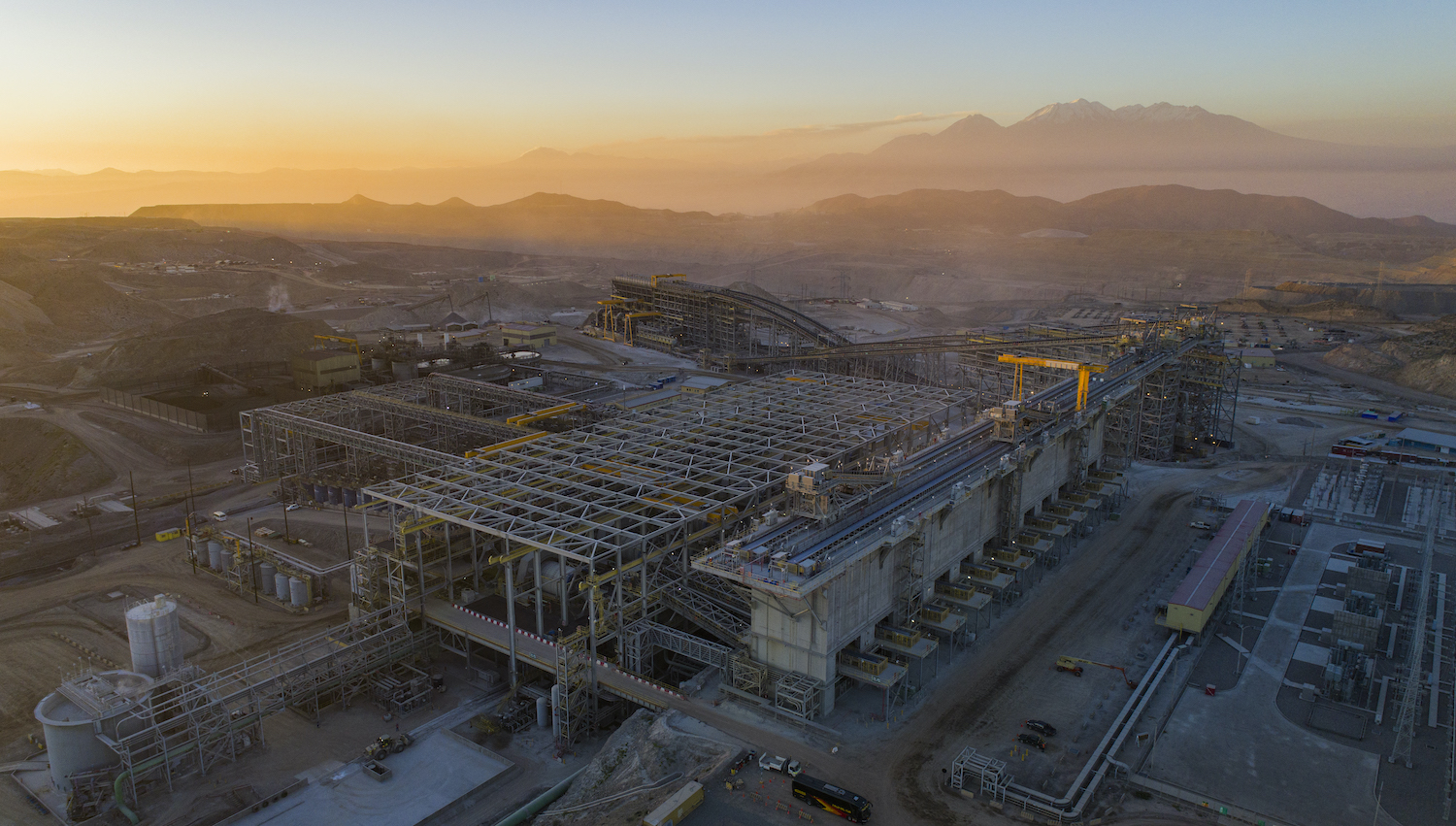A dust cloud of political uncertainty is blowing the way of the world’s two leading copper producers.
In South America’s copper-rich Andes, mining wealth is now in the crosshairs of angry citizens and political leaders in the wake of the worldwide Covid pandemic.
In No.1 copper producer Chile, an overhaul of its market-orientated constitution is underway, and it is debating whether to hike royalties on miners.
Also on ATF: China’s factories hit a headwind of rising costs and weak demand
And Peru, the No. 2 producer, is heading for a polarised June presidential election with a little-known socialist leading in the polls who wants to redistribute mining wealth.
“Some 42% of world copper mining production is under political uncertainty that could entail risks on future production,” said Juan Carlos Guajardo, head of the Chilean consulting firm Plusmining.
That uncertainty is fuelling global copper prices that have hit record highs as post-pandemic Chinese demand bounces back and the rapid development of green power drives further demand for the metal.
But in Latin America an economic bounceback looks some way off. The Covid-19 pandemic has brought more poverty, fuelling demands for better wealth redistribution as many struggle to cope amid lockdowns and high healthcare costs.
OUTSIZED ROLE
That has put mineral resources in focus, particularly in Chile and Peru, given the outsized role they play in the region’s economic engine.
Peruvian presidential front-runner Pedro Castillo has pledged to keep 70% of mining profits in the country and stop foreign firms’ “plundering,” and has warned he could nationalise some resources. He leads in the opinion polls ahead of the June 6 vote, though right-wing Keiko Fujimori is gaining ground.
Chile is in the midst of a longer process to rewrite its Augusto Pinochet-era constitution, which underpinned decades of growth but has also been blamed for stoking inequality that led to violent protests that rocked the country in 2019.
Chile’s lower house also approved this month a bill that would sharply hike taxes on copper mining to pay for social programmes, which some industry insiders warned could bring mining to a halt.
RESOURCE ALLOCATION
Pablo de la Flor, executive director of Peru’s main mining chamber, said there were issues of resource allocation that needed to be addressed. But the solution lay in reforming inefficient local governments rather than the tax regime, he said.
“Sadly the funds haven’t been used properly to close social gaps, leaving productive regions lagging behind,” he said.
The convergence of risks is creating the most uncertain backdrop in years, although the region has long been volatile, with frequent political changes, protests and strikes.
Mining executives said that some of the risk may be tempered as those seeking the boldest changes come up against political opposition and are forced to water down their plans.
MINERAL WEALTH
Chilean state miner Codelco is the world’s largest producer of copper, while the Andean country is home to BHP’s huge Escondida mine and Collahuasi, a joint venture by Glencore and Anglo American.
In Peru, Diego Macera, director of the Peruvian Institute of Economics, said redistribution of mineral wealth was an obvious way to raise public funds for the post-pandemic recovery, though a fragmented congress would likely limit the power of whoever becomes president.
But, he added, the uncertainty could put off investors, fearful the state will seize assets.
“Nobody likes to put in $1-1.5 billion of investment when the head of state might nationalise it,” he said.
Peru has a slate of some $56 billion in mining investments. Long-running community opposition has already paralysed some projects, including Southern Copper’s Tia Maria project and a $5 billion gold project by Newmont and local firm Buenaventura.
- Reporting by Reuters
























